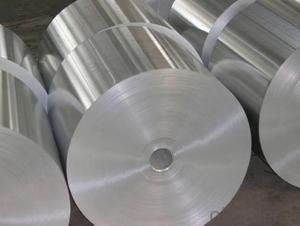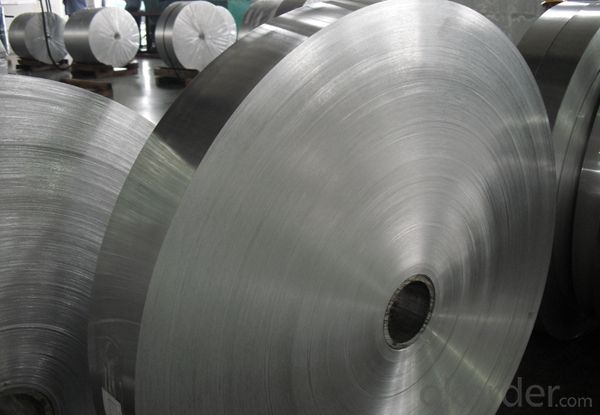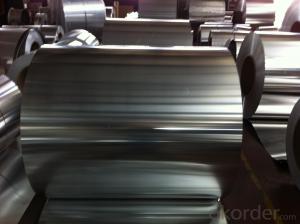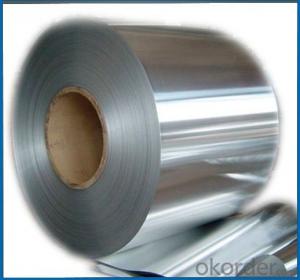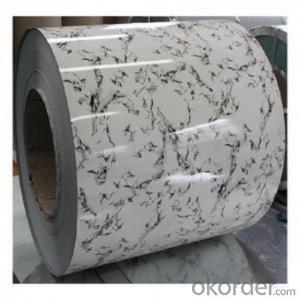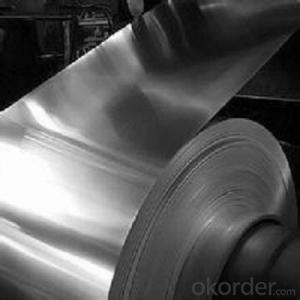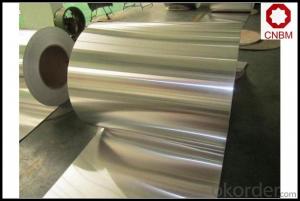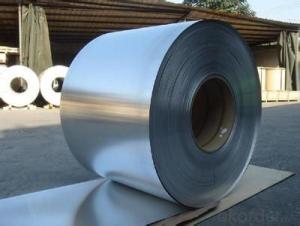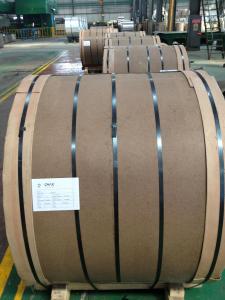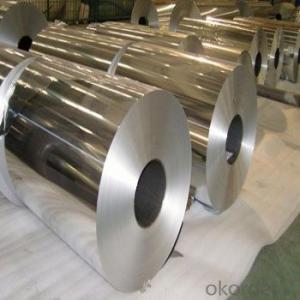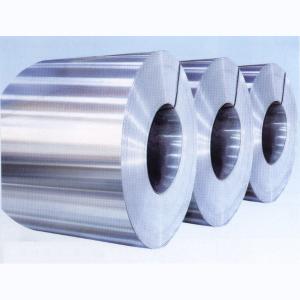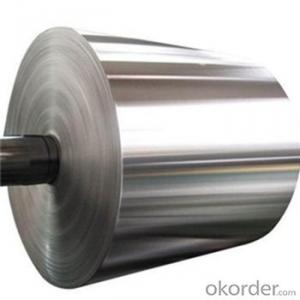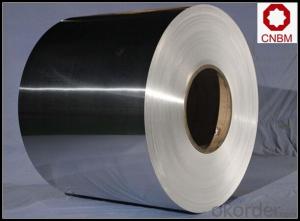American Standard Aluminum Coils - Rolls Aluminum Mill Finished Hot Selling Products
- Loading Port:
- Shanghai
- Payment Terms:
- TT OR LC
- Min Order Qty:
- 5 m.t.
- Supply Capability:
- 10000 m.t./month
OKorder Service Pledge
OKorder Financial Service
You Might Also Like
Specification
1. Specification of Rolls Aluminum Mill Finished Hot Selling Products
characteristics | Application |
1) Super peeling strength | 1) Building exterior curtain walls |
2) Excellent surface flatness and smoothness | 2) Decoration and renovation additions for old buildings |
3) Superior weather, corrosion, pollutant resistance | 3) Decoration of interior walls, ceilings, bathrooms, kitchens and balconies |
4) Even coating, various colors | 4) Shop door decorations |
5) Fireproof, excellent heat and sound insulation | 5) Advertisement board display platforms and signboards |
6) Superior impact resistance | 6) Wallboards and ceilings for tunnels |
7) Lightweight and easy to process | 7) Industrial materials, materials for vehicles and boats |
2. Application of Rolls Aluminum Mill Finished Hot Selling Products
(1).Interior: wall cladding, ceilings, bathrooms, kitchens and balconies, shutters, doors...
(2).Exterior: wall cladding, facades, roofing, canopies, tunnels,column covers , renovations...
(3).Advertisement: display platforms, signboards, fascia, shop fronts...
3. Feature of Rolls Aluminum Mill Finished Hot Selling Products
*Such coil is specially designed to replace aluminum ingot, due to the high export tax of aluminum ingot, the coil has better price than ingot.
*This type of coil can fit customer's remelting furnace just like ingot, no need to make any change to the production line that was previously used for ingot. The standard coil size and weight is very suitable for the feed gate of furnace.
*This type of coil causes less material wastage than ingot when remelted.
*Our coil is made directly from ore, no need to go though the ingot making process, quality is much better than other suppliers who use ingot scrap to make coil.
Be free from Oil Stain, Dent, Inclusion, Scratches, Stain, Oxide Dicoloration, Breaks, Corrosion, Roll Marks, Dirt Streaks and other defect which will interfere with use
4. Certificate:
SGS and ROHS(if client request, paid by client), MTC(plant provided), Certificate of Origin(FORM A, FORM E, CO), Bureau Veritas and SGS (if client request, paid by client), CIQS certificate
5. Image of Rolls Aluminum Mill Finished Hot Selling Products
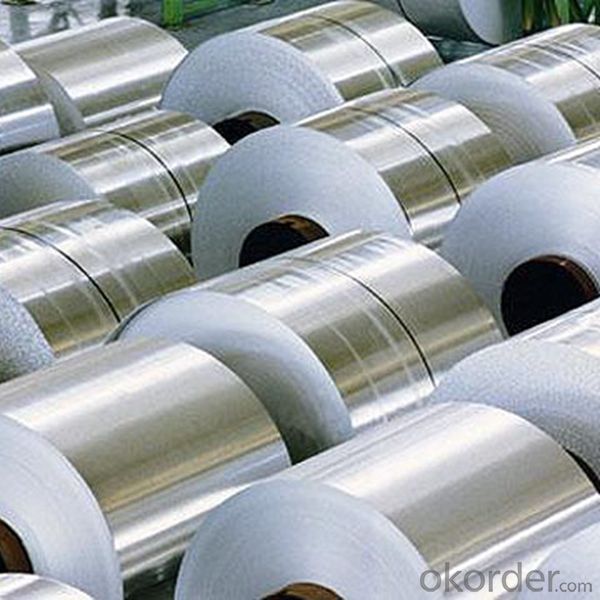
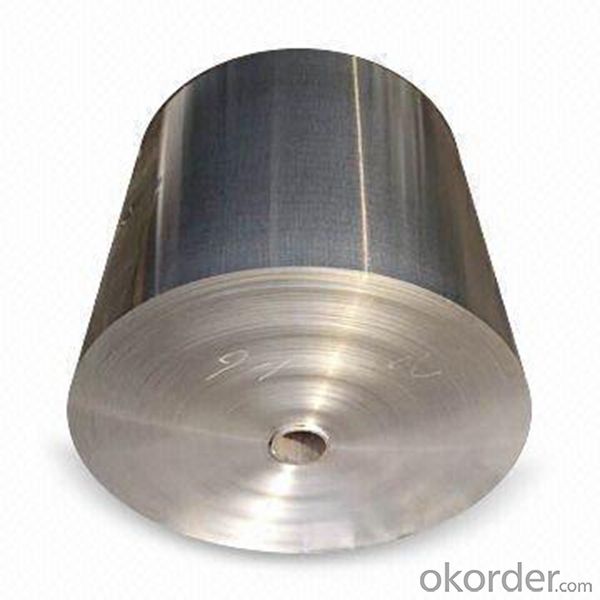
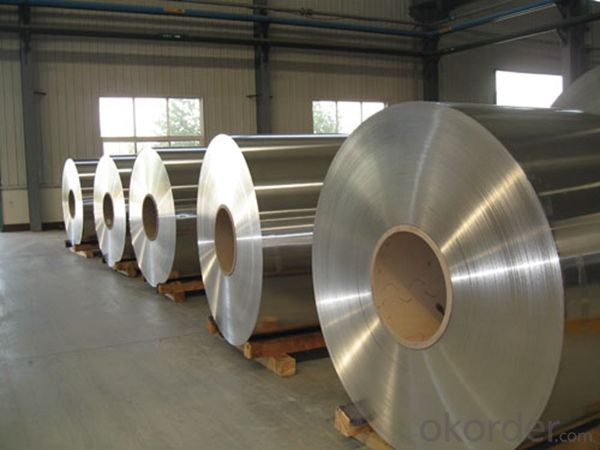
6. Package and shipping of Rolls Aluminum Mill Finished Hot Selling Products
eye to wall
eye to the wall
with wood pallet (wooded case also available)
7. FAQ
1) What is the delivery time?
Dpends on actual order, around 20 to 35 days
2)What is the QC system:
We have QC staff of 20 persons and advanced equipment, each production is with MTC traced from Aluminum ingot lot.
3) What market do you mainly sell to?
Australia, America, Asia, Middle East, Western Europe, Africa etc
- Q: Can aluminum coils be used in solar panel installations?
- Yes, aluminum coils can be used in solar panel installations. Aluminum is a popular choice for the construction of solar panels due to its lightweight nature, corrosion resistance, and excellent thermal conductivity. Aluminum coils are often used as the backing material for solar panels, providing structural support and heat dissipation. They are also commonly used in the manufacturing of solar mounting systems, which hold the panels securely in place. Overall, aluminum coils are a reliable and efficient option for solar panel installations.
- Q: Is aluminum veneer the same as color coated aluminum coil?
- Aluminum veneer is processed aluminum sheet, while color coated aluminum coil is raw material with color which can be called aluminum veneer after process.
- Q: What are the potential hazards associated with handling aluminum coils?
- The potential hazards associated with handling aluminum coils include the risk of physical injury due to their weight and sharp edges, the possibility of chemical exposure from coatings or lubricants used on the coils, and the potential for fire or explosion if the coils come into contact with certain substances. It is also important to be cautious of the risks associated with lifting heavy objects, such as strains or sprains.
- Q: What are the common cutting and shaping methods for aluminum coils?
- There are several common cutting and shaping methods for aluminum coils, depending on the desired outcome and application. One of the most common methods is shearing, which involves cutting the aluminum coil with a sharp blade. Shearing is ideal for straight cuts and is often used for applications that require precise dimensions, such as manufacturing automotive parts or construction materials. Another method is slitting, which involves cutting the aluminum coil into narrower strips. Slitting is commonly used in industries such as packaging, where thin strips of aluminum are needed to create products like food packaging or aluminum foil. For more complex shapes, such as curves or bends, a method called press brake forming is often used. In this process, the aluminum coil is placed in a press brake machine and bent into the desired shape using a punch and die. Press brake forming is commonly used in industries like aerospace or architectural design, where intricate shapes are required. Additionally, laser cutting is a popular method for cutting aluminum coils. Laser cutting uses a high-powered laser beam to cut through the aluminum, allowing for precise and intricate cuts. This method is often used in industries like signage or electronics, where detailed designs are necessary. Overall, the common cutting and shaping methods for aluminum coils include shearing, slitting, press brake forming, and laser cutting. These methods offer various options for manufacturers to shape aluminum coils according to their specific needs and requirements.
- Q: What maintenance is required for aluminum coils?
- To ensure efficient performance and longevity, aluminum coils require regular cleaning and inspection. Here are several specific maintenance guidelines to follow: 1. Cleanliness: It is crucial to regularly clean the aluminum coils to eliminate any dirt, dust, or debris that may accumulate on the surface. Utilize a soft brush or a vacuum cleaner with a brush attachment to gently remove loose particles. Avoid using abrasive cleaners or brushes that could potentially scratch or damage the aluminum. 2. Inspection: It is important to periodically inspect the aluminum coils for any signs of damage or wear. Check for bent or dented fins, as these can hinder airflow and decrease the efficiency of the coils. Additionally, be on the lookout for indications of corrosion, such as discoloration or pitting, as this can impact the coils' performance and lifespan. 3. Coil Protection: Applying a protective coating or sealant to the aluminum coils can safeguard them against corrosion and damage caused by moisture, chemicals, or harsh environmental conditions. This preventative measure can significantly extend the lifespan of the coils and maintain their optimal performance. 4. Lubrication: If the aluminum coils are part of a mechanical system, such as an HVAC unit, ensure that all moving parts are adequately lubricated. This will minimize friction and wear on the coils, thus enhancing their efficiency and preventing premature failure. 5. Professional Maintenance: It is advisable to schedule regular professional maintenance for your aluminum coils, particularly if they are part of a larger system. HVAC technicians or specialized coil cleaning services can conduct a thorough inspection, cleaning, and maintenance to ensure peak performance and identify any potential issues early on. By adhering to these maintenance practices, you can effectively prolong the lifespan of your aluminum coils, enhance their efficiency, and avoid costly repairs or replacements.
- Q: Are there any limitations or restrictions on the use of aluminum coils?
- Yes, there are limitations and restrictions on the use of aluminum coils. Some of the main limitations include: 1. Corrosion: Aluminum is prone to corrosion, especially when it comes into contact with certain chemicals or environments. Therefore, it may not be suitable for applications where it will be exposed to corrosive substances or in highly corrosive environments. 2. Strength: While aluminum is a lightweight material, it is not as strong as other metals like steel. This can limit its use in applications that require high strength or load-bearing capabilities. 3. Temperature sensitivity: Aluminum has a lower melting point compared to other metals, which can be a limitation in applications where high temperatures are involved. It may not be suitable for use in certain industrial or high-temperature environments. 4. Electrical conductivity: While aluminum has good electrical conductivity, it is not as conductive as copper. This can limit its use in applications where high electrical conductivity is required, such as in electrical wiring or power transmission. 5. Cost: Aluminum can be more expensive than other metals, limiting its use in applications where cost is a significant factor. In such cases, alternative materials may be preferred. 6. Formability: Aluminum coils can be difficult to form or shape compared to some other metals. This limitation may restrict their use in applications where complex shapes or tight tolerances are required. It is important to consider these limitations and restrictions when selecting aluminum coils for a particular application. Careful evaluation of the specific requirements and constraints will help determine whether aluminum coils are suitable or if alternative materials should be considered.
- Q: What are the compositions of aluminum coil coating?
- The common compositions are crylic resin, solid inorganic filler, different pigments, flatting agent and so on.
- Q: Are aluminum coils applicable in the manufacturing process of automobiles?
- <p>Yes, aluminum coils are widely used in automobile manufacturing. They are utilized in various components such as engine parts, body panels, and wheels due to their lightweight, corrosion resistance, and strength. Aluminum's recyclability and energy efficiency also make it an environmentally friendly choice for the automotive industry.</p>
- Q: This question asks for methods to prevent rusting on aluminum coils during storage and transportation.
- <p>To prevent rusting on aluminum coils during storage and transportation, ensure that the coils are clean and dry before storage. Use a protective coating or wrapping to shield them from moisture and contaminants. Store the coils in a cool, dry place away from direct sunlight and corrosive substances. Avoid stacking them where they may come into contact with acidic materials. During transportation, secure the coils properly to prevent movement that could lead to scratches or damage. Use moisture-resistant covers to protect them from the elements. Regularly inspect the coils for signs of corrosion and address any issues promptly.</p>
- Q: Is it possible to utilize recycled aluminum coils for a project instead of purchasing new ones?
- <p>Yes, you can use recycled aluminum coils in your next project instead of buying new ones. Recycled aluminum is environmentally friendly and often more cost-effective. It maintains the same properties as new aluminum, making it suitable for various applications. Ensure the recycled coils meet the quality standards required for your project. Check for any impurities or damage that might affect performance. Using recycled materials not only reduces waste but also conserves resources.</p>
Send your message to us
American Standard Aluminum Coils - Rolls Aluminum Mill Finished Hot Selling Products
- Loading Port:
- Shanghai
- Payment Terms:
- TT OR LC
- Min Order Qty:
- 5 m.t.
- Supply Capability:
- 10000 m.t./month
OKorder Service Pledge
OKorder Financial Service
Similar products
Hot products
Hot Searches
Related keywords
